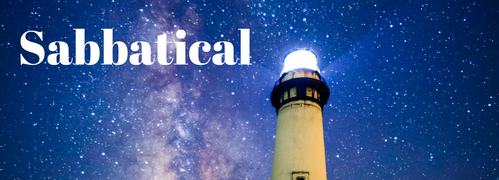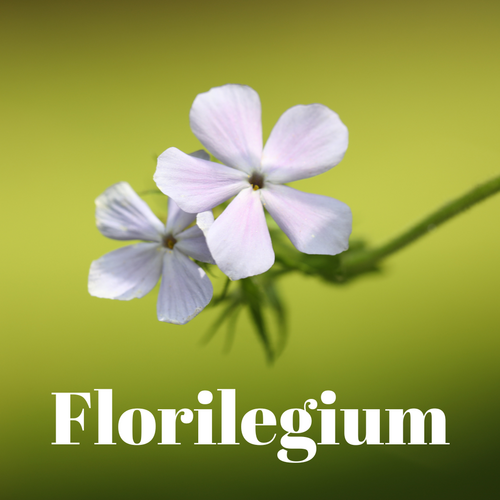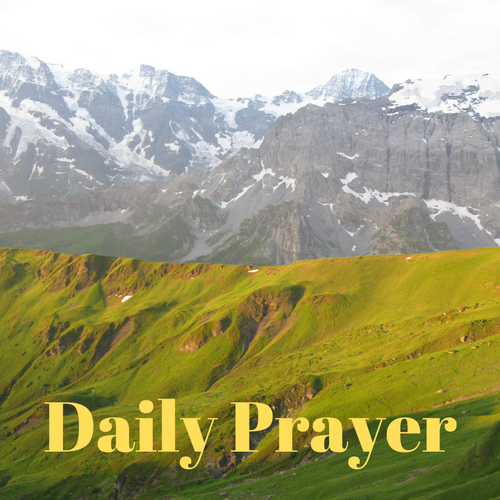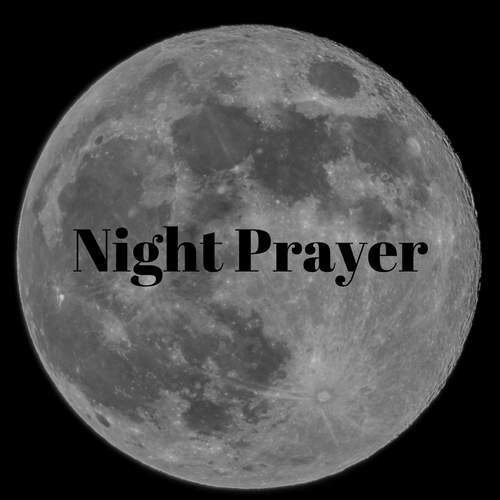

Daily Primer — July 6, Honningsvåg — Norway
Each day you will be given:
A Florilegium entry
A Daily Prayer
and a Night Prayer.
A Florilegium entry
A Daily Prayer
and a Night Prayer.

God our pilgrimage impels,
To cross sea-waste or scale life-fells;
A further shore,
One hill brow more,
Draws our feet, or arm-plied oars,
As the soul onward, upward soars.
=======
The bell calls in the town
Where forebears cleared the shaded land
And brought high daylight down
To shine on field and trodden road.
I hear, but understand
Contrarily, and walking the woods.
I leave labor and load,
Take up a different story.
I keep an inventory
Of wonders and of uncommercial goods.
I climb up through the field
That my long labor has kept clear.
Projects, plans unfulfilled
Waylay and snatch at me like briars,
For there is no rest here
Where ceaseless effort seems to be required,
Yet fails, and spirit tires
with flesh, because failure
And weariness are sure
In all that mortal wishing has inspired.
I go in pilgrimage
Across an old fenced boundary
To wildness without age
Where, in their long dominion,
The trees have been left free.
They call the soil here “Eden” — slants and steeps
Hard to stand straight on
Even without a burden.
No more a perfect garden,
There’s an immortal memory that it keeps.
I leave work’s daily rule
And I come here to this restful place
Where music stirs the pool
And from high stations of the air
Fall notes of wordless grace,
Strewn remnants of the primal Sabbath’s hymn.
And I remember here
A tale of evil twined
With good, serpent and vine,
And innocence as evil’s stratagem.
I let that go a while,
For it is hopeless to correct
By generation’s toil,
And I let go my hopes and plans
That no toil can perfect.
There is no vision here but what is seen:
White bloom nothing explains
But a mute blessedness
Exceeding all distress,
The fresh light stained a hundred shades of green.
Uproar of wheel and fire
That has continued us like a cell
Opens and lets us hear
A stillness longer than all time
Where leaf and song fulfill
The passing light, pass with the light, return,
Renewed, as in a rhyme.
This is no human vision
Subject to our revision;
God’s eye holds every leaf as light is worn.
Ruin is in place here:
The dead leaves rotting on the ground,
The live leaves in the air
Are gathered in a single dance
That runs them round and round.
The fox cub trots his almost pathless path
As silent as his absence.
These passings resurrect
A joy without defect,
The life that steps and sings in ways of death.
To cross sea-waste or scale life-fells;
A further shore,
One hill brow more,
Draws our feet, or arm-plied oars,
As the soul onward, upward soars.
=======
The bell calls in the town
Where forebears cleared the shaded land
And brought high daylight down
To shine on field and trodden road.
I hear, but understand
Contrarily, and walking the woods.
I leave labor and load,
Take up a different story.
I keep an inventory
Of wonders and of uncommercial goods.
I climb up through the field
That my long labor has kept clear.
Projects, plans unfulfilled
Waylay and snatch at me like briars,
For there is no rest here
Where ceaseless effort seems to be required,
Yet fails, and spirit tires
with flesh, because failure
And weariness are sure
In all that mortal wishing has inspired.
I go in pilgrimage
Across an old fenced boundary
To wildness without age
Where, in their long dominion,
The trees have been left free.
They call the soil here “Eden” — slants and steeps
Hard to stand straight on
Even without a burden.
No more a perfect garden,
There’s an immortal memory that it keeps.
I leave work’s daily rule
And I come here to this restful place
Where music stirs the pool
And from high stations of the air
Fall notes of wordless grace,
Strewn remnants of the primal Sabbath’s hymn.
And I remember here
A tale of evil twined
With good, serpent and vine,
And innocence as evil’s stratagem.
I let that go a while,
For it is hopeless to correct
By generation’s toil,
And I let go my hopes and plans
That no toil can perfect.
There is no vision here but what is seen:
White bloom nothing explains
But a mute blessedness
Exceeding all distress,
The fresh light stained a hundred shades of green.
Uproar of wheel and fire
That has continued us like a cell
Opens and lets us hear
A stillness longer than all time
Where leaf and song fulfill
The passing light, pass with the light, return,
Renewed, as in a rhyme.
This is no human vision
Subject to our revision;
God’s eye holds every leaf as light is worn.
Ruin is in place here:
The dead leaves rotting on the ground,
The live leaves in the air
Are gathered in a single dance
That runs them round and round.
The fox cub trots his almost pathless path
As silent as his absence.
These passings resurrect
A joy without defect,
The life that steps and sings in ways of death.
Alistair Maclean, Hebridean Altars: The Spirit of an Island Race (Wipe & Stock: Eugene Oregon, 1937) p.55.
And then:
1979, IV from A Timbered Choir: Sabbath Poems 1979-1997, by Wendell Berry.
And then:
1979, IV from A Timbered Choir: Sabbath Poems 1979-1997, by Wendell Berry.
Florilegium is the Medieval Latin word for bouquet, or more literally flowers (flos, flor-) which are gathered (legere). The word florilegium was used to refer to a compilation of writings, often religious or philosophical. These florilegium are literary flowers—beautiful words/prayers/thoughts I have gathered. During my sabbatical they will give me something to ponder each day. — PHL.

Lord God, open us to see you in this world. Give us the capacity to discern the tell-tale signs your love has left upon the creation. As we make our way through the days of life, help us to truly see a flower, a landscape, the play of light and shadow — that in looking for sacred things among the ordinary sights of our day, we might find you. In the name of the Father, and of the Son, and of the Holy Spirit. Amen.
Psalm 19; Psalm 104. Liturgy of the Hours — PHL.

We praise you, O God, we acclaim you as Lord;
all creation worships you, the Father everlasting.
To you all angels, all the powers of heaven,
the cherubim and seraphim, sing in endless praise:
Holy, holy, holy Lord, God of power and might,
heaven and earth are full of your glory.
The glorious company of apostles praise you.
The noble fellowship of prophets praise you.
The white-robed army of martyrs praise you.
Throughout the world the holy Church acclaims you:
Father, of majesty unbounded,
your true and only Son, worthy of all praise,
the Holy Spirit, advocate and guide.
all creation worships you, the Father everlasting.
To you all angels, all the powers of heaven,
the cherubim and seraphim, sing in endless praise:
Holy, holy, holy Lord, God of power and might,
heaven and earth are full of your glory.
The glorious company of apostles praise you.
The noble fellowship of prophets praise you.
The white-robed army of martyrs praise you.
Throughout the world the holy Church acclaims you:
Father, of majesty unbounded,
your true and only Son, worthy of all praise,
the Holy Spirit, advocate and guide.
Opening sequence of Te Deum — This Latin hymn to the Trinity traditionally (but probably wrongly) attributed to St. Ambrose (340-397 CE) is thought by some scholars to have been composed by Bishop Niceta of Remesiana (335-414 CE).
